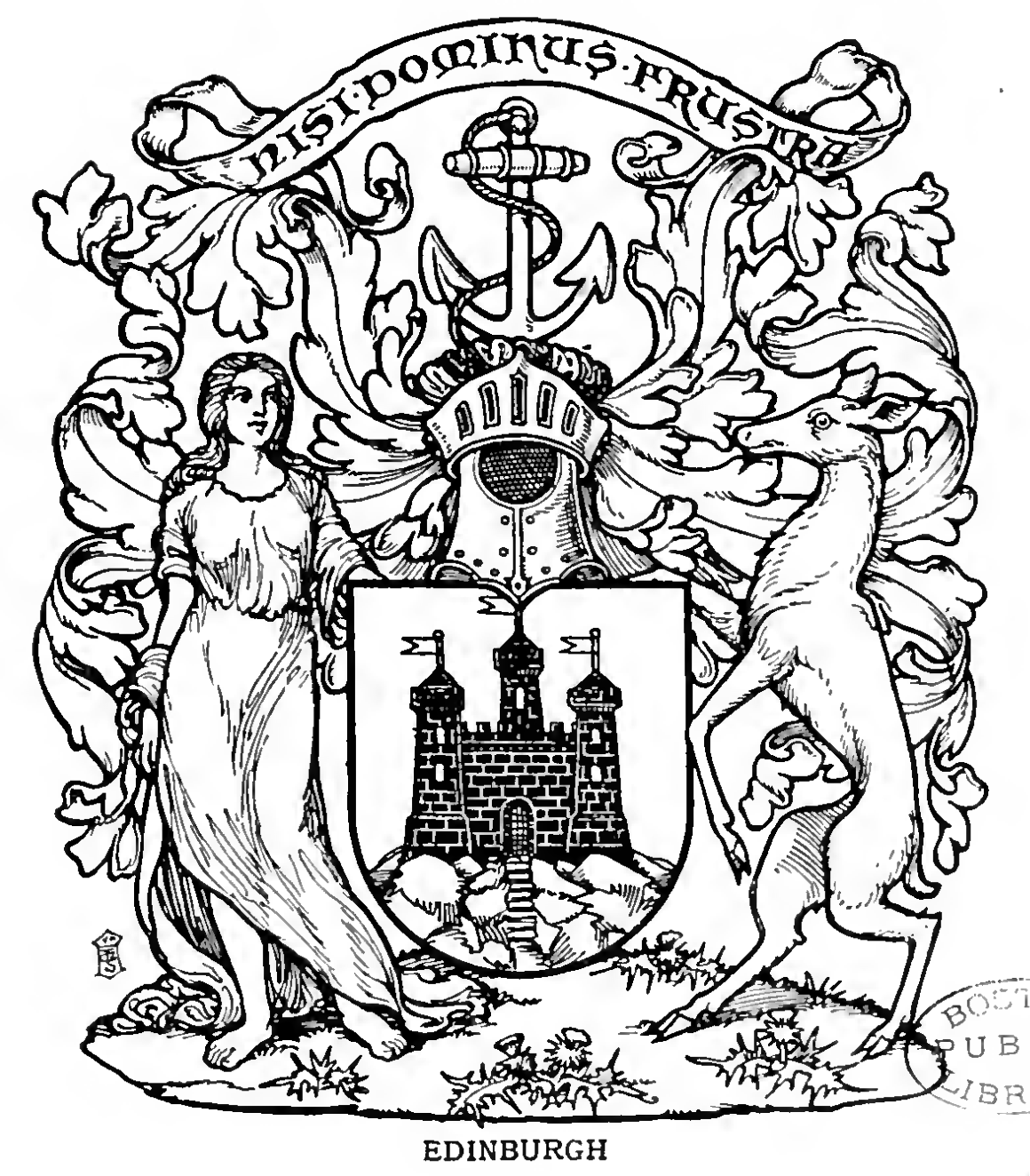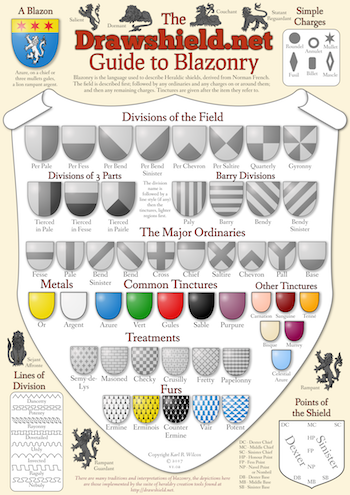EDINBURGH.
EDINBURGH. The entry in Lyon Register is as follows: — "The Royall Burgh of Edinburgh bears Argent a castle triple-towered and embattled, sable masoned of the first and topped with three fans gules, windows and portcullis shut of the last, situate on a rock proper. And on a wreath of the colours is set for Crest, An anchor wreathed about with a cable all proper. Motto, in an escrol above. Nisi Dominus Frustra. Supported on the dexter by a maid richly attir'd with her hair hanging down over her shoulders, and on the sinister by a doe proper."
The patent granting these arms, which was presented for registration on the 23rd day of November 1774, is dated the 21st day of April 1732, and signed Alex. Brodie, Lyon.
No painting of the arms exists in the Lyon Register. The patent mentioned cannot be found and as a " maid richly attir'd with her hair hanging down over her shoulders" is slightly indefinite, it is with no great sense of security that the accompanying illustration is put forward, The varying styles of " fashion, form, and feature " suggested to answer the requirements of the blazon are many and wonderful. The following legend, which the editor takes from a newspaper cutting, may or may not have reference to the arms of the town : —
"The historians of that city cannot be accused of indifference to the antiquity of their town, for some of them maintain that its foundation dates as far back as 989 B.C., when, according to these fabulous accounts, Ebranke was King of Britain, as well as of Albanye or Scotland. Now King Ebranke seems to have been a thoroughgoing Bluebeard, having as many as twenty-one wives and half a hundred children. For his twenty-five daughters he built the Castle of Maydens, which is Edinburgh Castle, and which appears on the .'\rms of the town. Here he kept them until they were grown up, when he packed them all off to Italy to be married. Whether they all lived happy ever afterwards we cannot say. As to the Castle, we know that the early history of Edinburgh is chiefly confined to accounts of that stronghold. King David I. seems the first of the real kings who made it his residence. There is a picturesque story about his having gone out to hunt deer, and how he became separated from the rest of the party, and thrown from his horse near the castle gate. Here a white hart was rushing upon him to gore him, when a cross marvellously slipped into his hand, and the hart being frightened at seeing this, turned away and left him unharmed. The words of the motto are from Psalm cxxvii. and imply the vanity of human effort unless blessed by Heaven."
Original Source bookofpublicarms00foxd_djvu.txt near line 9424.

Please Help!
DrawShield is a Free service supported by its users.

If you can, please help cover the cost of the server, or just buy the team a coffee to say thanks!
 Buy me a coffee
Buy me a coffee


